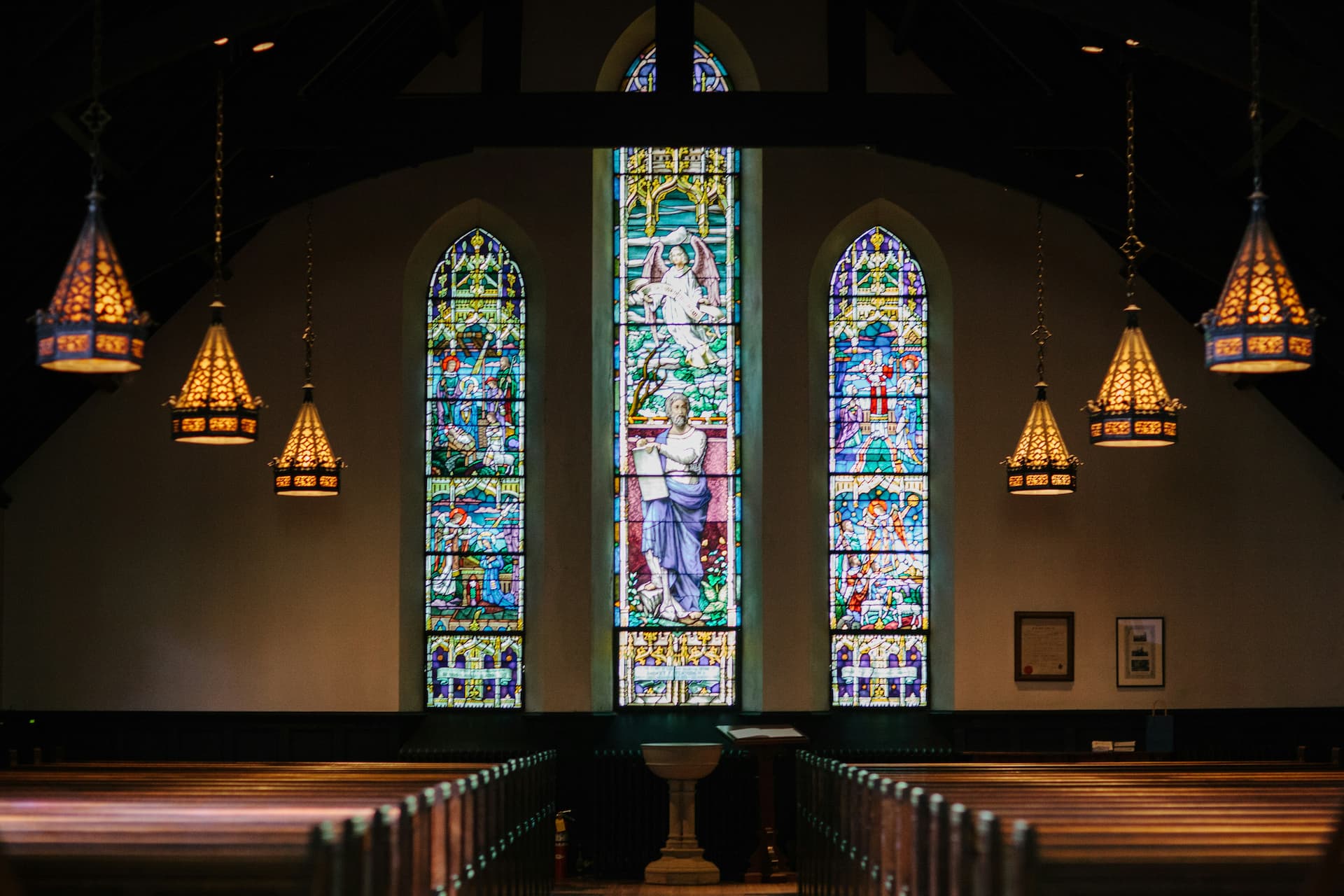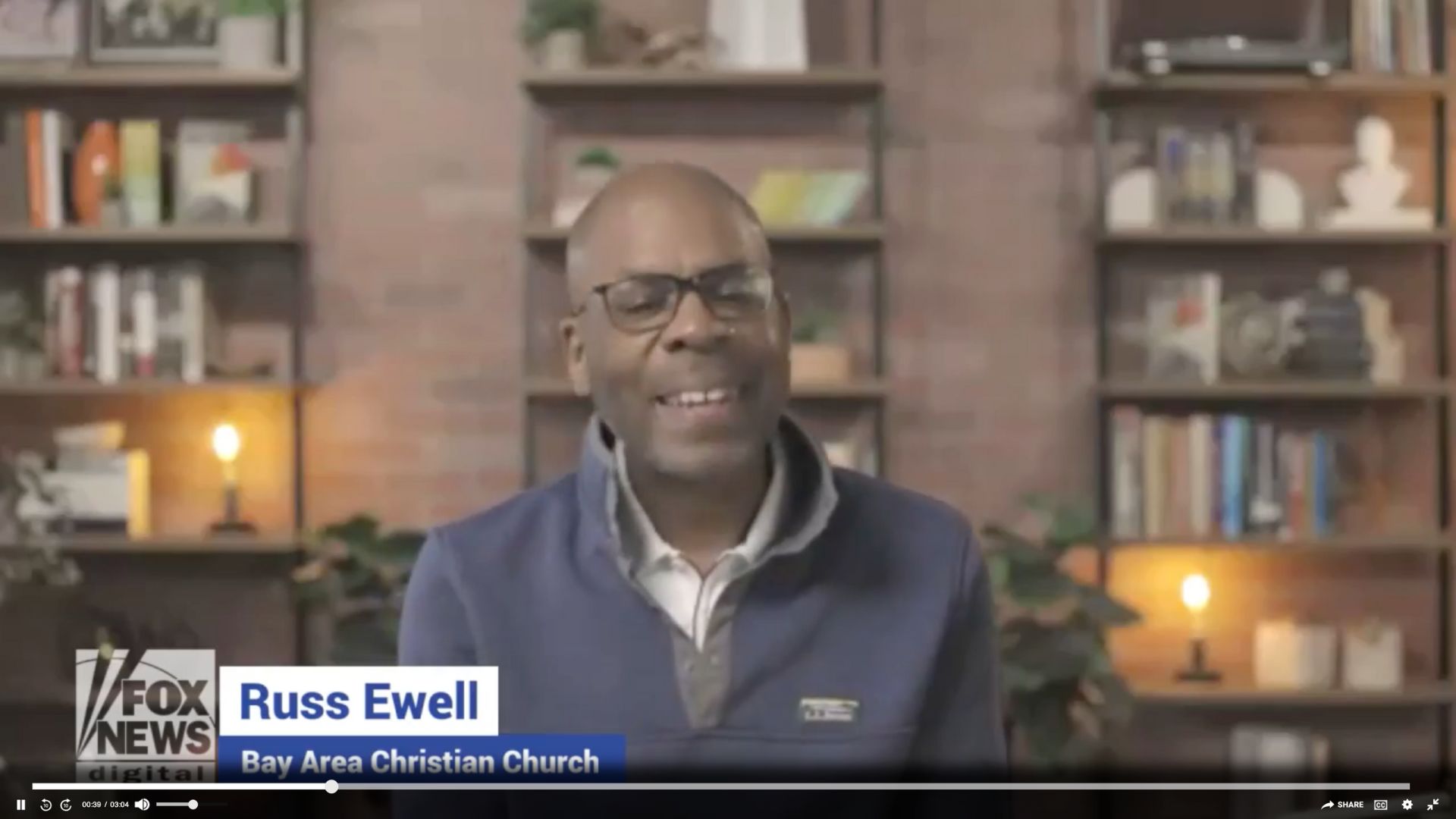Sign up for The Good Stuff
Our weekly newsletter filled with news, updates, and inspiring stories of how God is working in the Bay Area.
"*" indicates required fields
Sign up for The Good Stuff
Our weekly newsletter filled with news, updates, and inspiring stories of how God is working in the Bay Area.
"*" indicates required fields
Great theatrical plays never end after a first act; it’s in the second act where the story launches forward, the action happens, the plot thickens, and each characters evolves culminating into the grand finale and purpose of the story. Too often we can mistake our second act for a cursory refinement of our first act, rather than living out the unprecedented life and purpose God dreamed for us.
A true second act is a life and purpose that cannot be lived or sustained alone, but only with God and spiritual friendships. We see this throughout the Scriptures – God turning ordinary people and into extraordinary visionaries. One example we see this in is in the life of the apostle Paul:
But whatever former things I had that might have been gains to me, I have come to consider as [one combined] loss for Christ’s sake. 8 Yes, furthermore, I count everything as loss compared to the possession of the priceless privilege (the overwhelming preciousness, the surpassing worth, and supreme advantage) of knowing Christ Jesus my Lord and of progressively becoming more deeply and intimately acquainted with Him [of perceiving and recognizing and understanding Him more fully and clearly].
Philippians 3:7-8 (Amp)
Are you living your second act? In the Scripture above, it is clear that Paul embraced his. What compelled him to let go of his past? What changed his priorities? What changed his view of what was most valuable in his life? It was the grace of God:
But by the grace of God I am what I am, and his grace to me was not without effect. No, I worked harder than all of them—yet not I, but the grace of God that was with me.
1 Corinthians 15:10 (NIV)
Embracing the grace of God is more than just understanding forgiveness. It’s the power to change our lives, regardless of whatever failure, fear, or frustrating limit we face. It’s our response to the Cross, to the limitless forgiveness and second chances, God chose to give us, because he believes more in our future than in our failures.
Unfortunately, many who are religious claim to understand Forgiveness, but their lives deny its power. They think it’s all about feeling better, feeling relief, feeling morally superior to others, without a passion or determination to change lives by helping others experience a relationship with God.
How do we know when we’ve discovered and embraced the second act God desires for us? Our lives begin having far greater impact in changing lives, because our love for God and others increases while our love for self diminishes. We see this in the life of a “sinful woman” who was labeled and limited by her past, who because of grace shown to her, becomes compelled to love boldly because she was given a second act by God:
“A certain lender had two debtors. One owed enough money to pay five hundred people for a day’s work. The other owed enough money for fifty. 42 When they couldn’t pay, the lender forgave the debts of them both. Which of them will love him more?” 43 Simon replied, “I suppose the one who had the largest debt canceled.” Jesus said, “You have judged correctly.” 44 Jesus turned to the woman and said to Simon, “Do you see this woman? When I entered your home, you didn’t give me water for my feet, but she wet my feet with tears and wiped them with her hair. 45 You didn’t greet me with a kiss, but she hasn’t stopped kissing my feet since I came in. 46 You didn’t anoint my head with oil, but she has poured perfumed oil on my feet. 47 This is why I tell you that her many sins have been forgiven; so she has shown great love. The one who is forgiven little loves little.” 48 Then Jesus said to her, “Your sins are forgiven.”
Luke 6:41-48 (CEB)
Both in the lives of Paul and the “sinful woman” we find 3 decision they each made to start their Second Act:
1. Forget the Familiar: Choose God’s Word, Over My Experience
I will lead blind Israel down a new path, guiding them along an unfamiliar way. I will brighten the darkness before them and smooth out the road ahead of them. Yes, I will indeed do these things; I will not forsake them.
Isaiah 42:16 (NLT)
In any great play, a second act never resembles or repeats the first act. Too often we try to hold on to the first half, first experience, or first ways we’ve embraced in our lives.
For the vast majority, the past too often determines our future. We allow our accumulated life experiences, sins and struggles to limit our sight in seeing a far greater Second Act to our life, than the First Act we’ve experienced up until now.
In God’s plan, every second act begins with choosing to live by his Word of God. It’s in the Bible we come to understand God’s plan, power, and priorities, which pave a way of life counter to our familiar instincts, experiences and perceptions. When we choose to obey the Scriptures, it will not only be unfamiliar initially, but faith-building as we see it’s truth come to fruition in our lives, leading to our second act (Romans 10:17).
2. Embrace the Truth: Choose to Feel, Rather than Harden
Here is what I’m telling you. I am speaking for the Lord as I warn you. You must no longer live as the Gentiles do. Their thoughts don’t have any purpose. 18 They can’t understand the truth. They are separated from the life of God. That’s because they don’t know him. And they don’t know him because their hearts are stubborn. 19 They have lost all feeling for what is right. So they have given themselves over to all kinds of evil pleasures. They take part in every kind of unclean act. And they are full of greed. 20 But that is not the way of life in Christ that you learned about.
Ephesians 4:17-20 (NIRV)
When our hearts are stubborn and hardened, we can’t see nor understand the Truth God is trying to reveal to us, to give us a clear vision of our Second Act.
What truths do we Harden to? Suppress? Ignore? It’s only when we embrace truths about who we are and the impact of our choices that we can feel again, and be set free to start a second act (John 8:32). Paul chose to feel the damaging impact of his choices and sin against God and others.
The sinful woman chose to own who she had become because of the sinful lifestyle she had chosen to live. Both decided to accept the reality of the unfamiliar truth God showed them – they each chose to feel rather than harden, and came to a deep understanding of their need for God. As a result, they experienced God’s grace – more than just forgiveness, it was an opportunity to start their second act. Their past became irrelevant because God’s purposes became all-inspiring.
3. Take Bold Action: Choose Repentance Over Regret
God has shown me amazing and wonderful things. People should not think more of me because of it. So I wouldn’t become proud of myself, I was given a problem. This problem caused pain in my body. It is a messenger from Satan to make me suffer. 8 Three times I begged the Lord to take it away from me. 9 But he said to me, “My grace is all you need. My power is strongest when you are weak.” So I am very happy to brag about how weak I am. Then Christ’s power can rest on me. 10 Because of how I suffered for Christ, I’m glad that I am weak. I am glad in hard times. I am glad when people say mean things about me. I am glad when things are difficult. And I am glad when people make me suffer. When I am weak, I am strong.
2 Corinthians 12:7-10 (NIRV)
Paul shares how we went from being regretfully consumed with his weaknesses and limits, to responding to God’s grace by choosing to embrace how God would move and display his power through them. He understood that a second act was not about his personal convenience or comfort, but about the convincing proof of God’s power when displayed despite Paul’s weaknesses. This is what compelled Paul to repent – to turn to God and preach boldly, live boldly, and love boldly wherever he went (Acts 9:28, 13:46, 14:3, 18:26, 19:8, 28:31). His second act was characterized by the great multitude of lives changed because he choose to a life of bold repentance rather than bitter regret.
We also see this in the life of the sinful woman: Rather than deny or hide her past sin and shortcomings, she was bold in openly being herself, demonstrating her need for God and forgiveness, then boldly loved Jesus regardless of her past. She experienced her second act because she took action to love, rather than indulging herself in regret. Her bold action and repentance is a second act that continues to inspire and illustrate to generations the kind of love anyone can give when they experience the grace of God.
What regret is holding you back from embracing God’s second act for you? Have you chosen to be bitter about your limits or bold in embracing them?
By making these 3 decisions, we’ll begin seeing and living out our Second Act!

Written by
Ray Kim
Ray Kim is a Southern California native who made the Bay Area his home after graduating from the University of California, Berkeley. He is passionate about community service, and is spearheading such efforts as the E-Hoops program at the University of San Francisco.
Russ Ewell writes about how the statistical decline in explicit religiosity is counteracted by the precious, insatiable spirituality God can use to call to us.
Only three in 10 Americans attend church once a week or almost once a week, according to a recent Gallup poll.
We can change people’s lives through relationships, spirituality, and meeting needs, says our Executive Minister on CBN News


